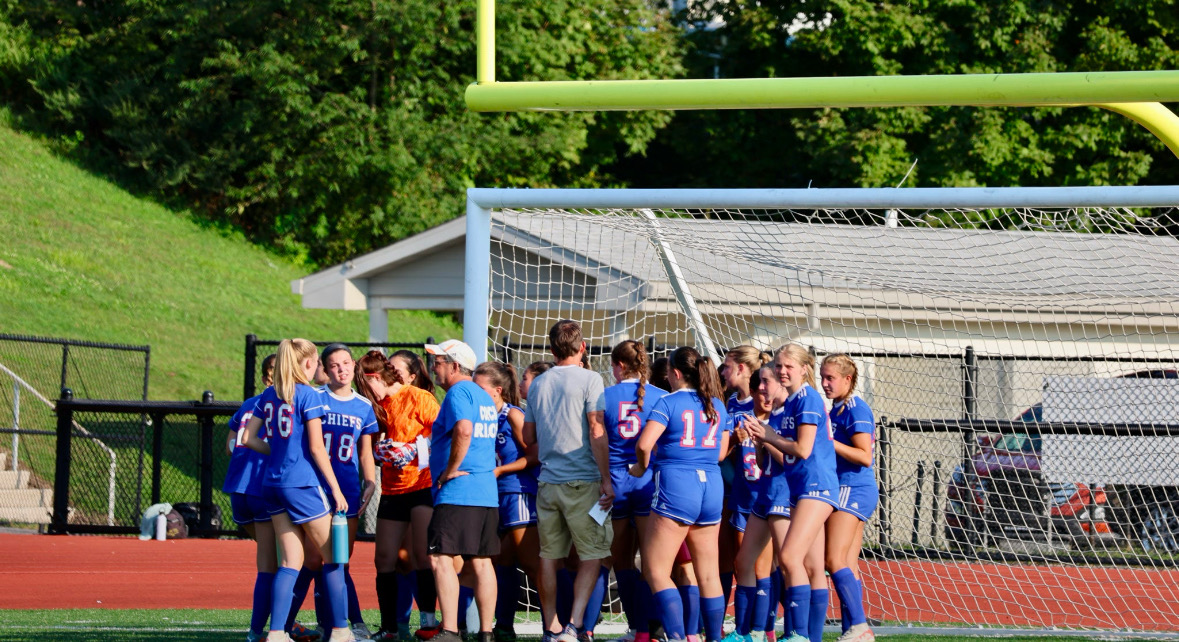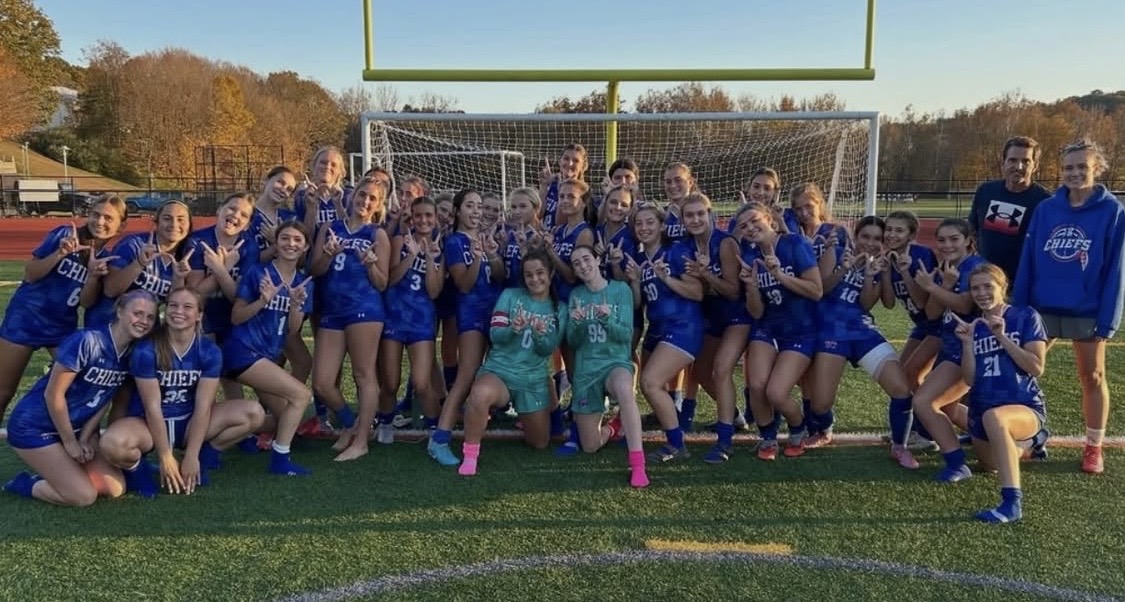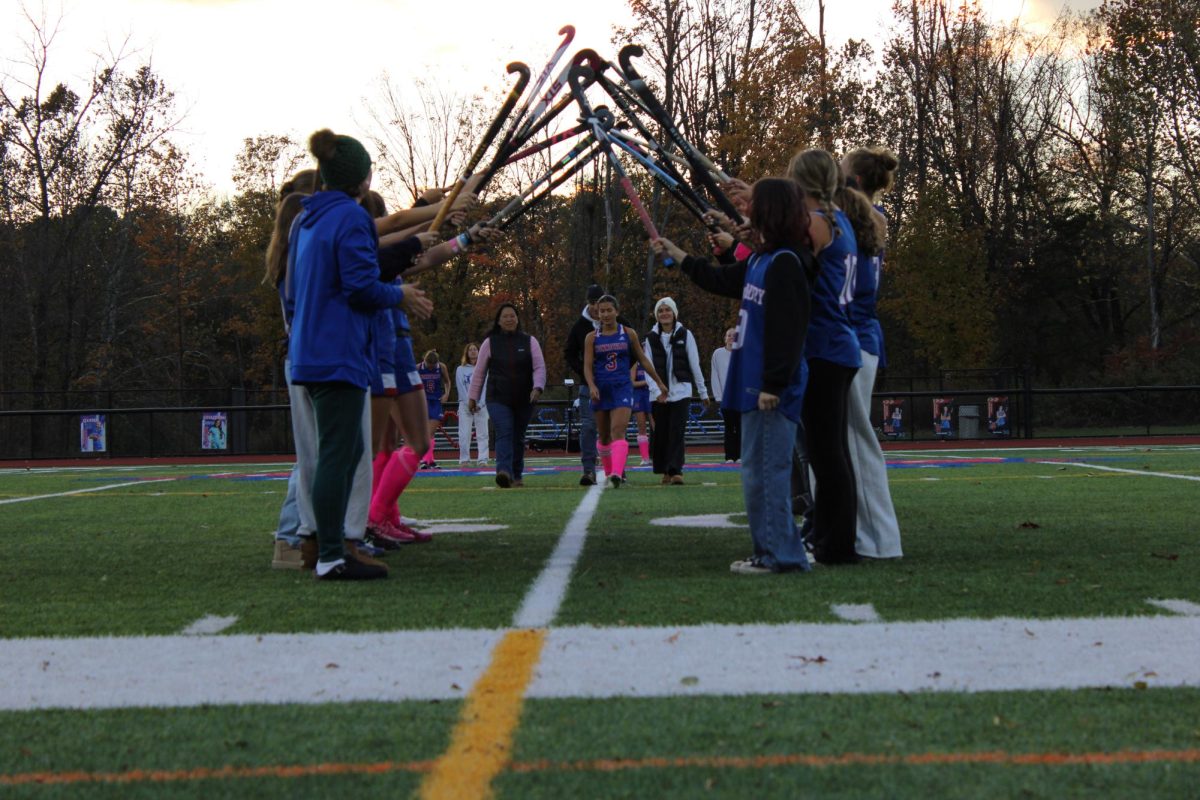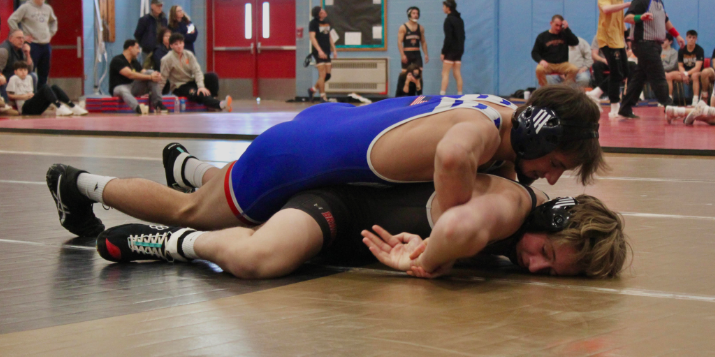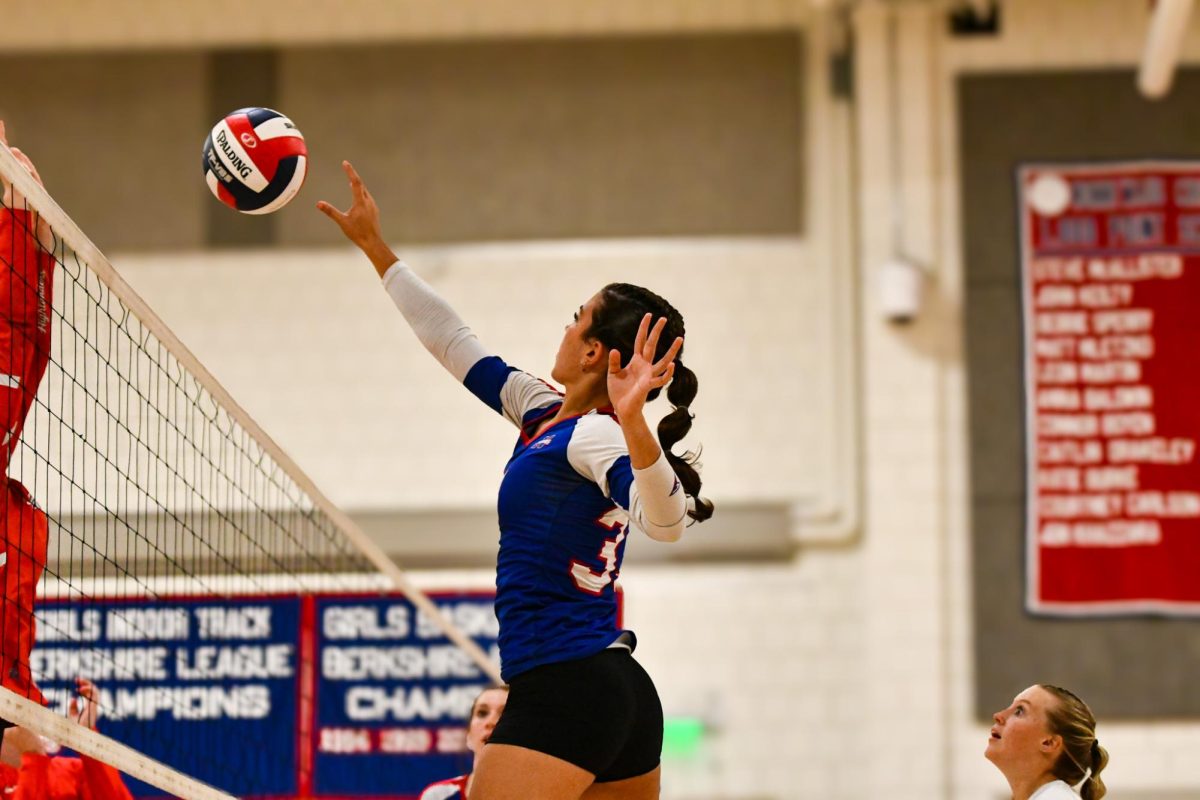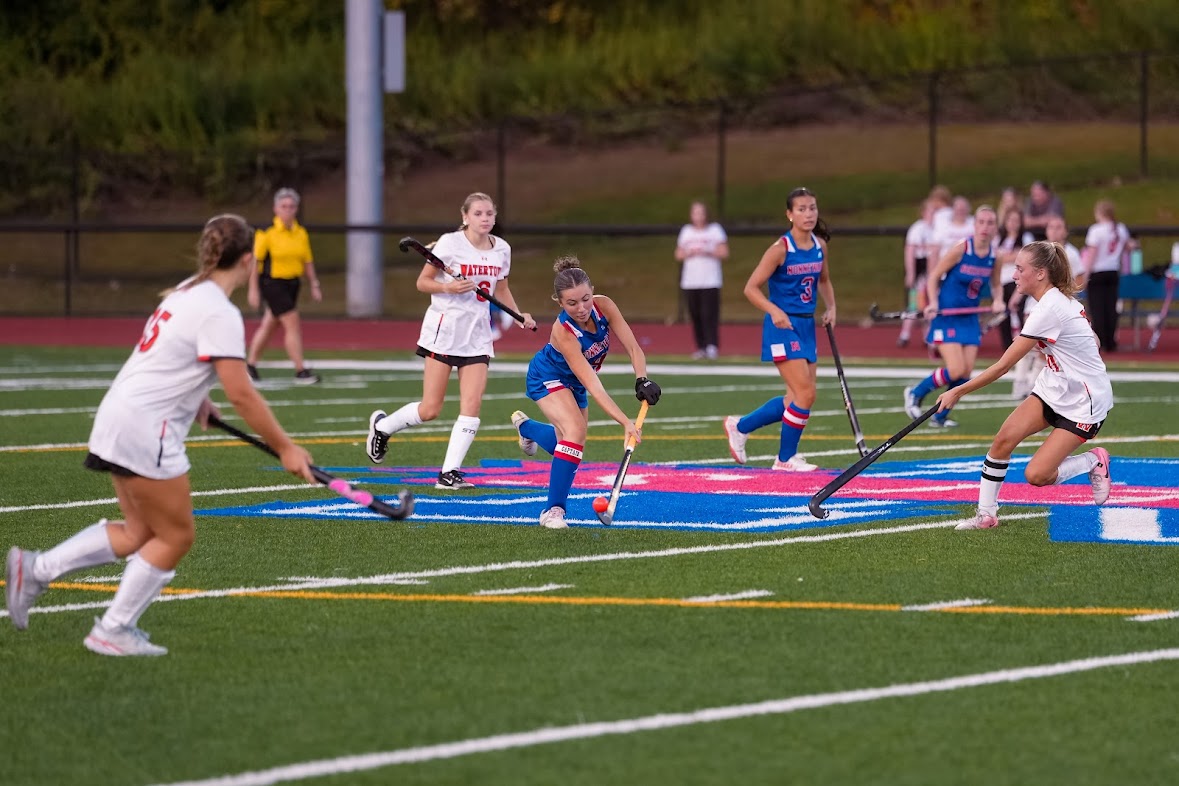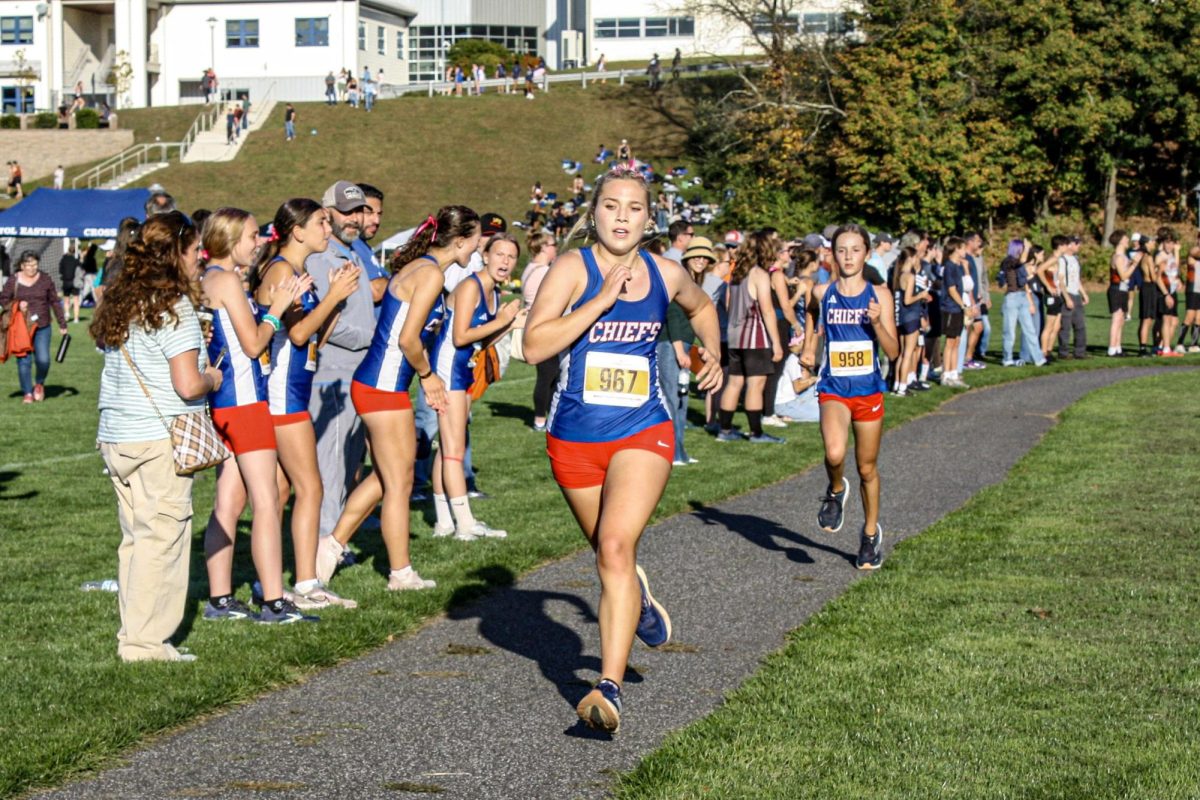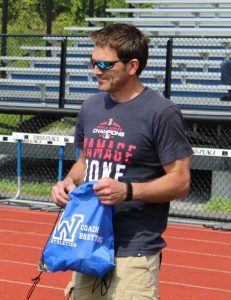
WOODBURY — It’s 2:45 after school, and it’s gameday on the Nonnewaug turf.
The entire NHS girls soccer team is on the field. Hair is done, jerseys put on, shin guards are slid into socks, and everyone begins to form lines to stretch.
In the middle of this routine, Adam Brutting is waiting in between lines, making sure to high-five each player before the opening whistle sounds. This is what his culture looks like: an investment in each and every player, a culture that contributes to winning.
For Brutting, the culture he creates in the classroom and on the field doesn’t happen by accident. A staunch competitor and unrivaled motivator, Brutting brings a relentless competitive desire to everything he does.
For the last 27 years, Brutting has brought much to Region 14. From teaching, to coaching every season, for both the middle and high school, Brutting’s connection to Region 14 is seemingly never-ending. Brutting makes sports fun for all the athletes he coaches and he also transforms his classroom into a place where kids want to be.
“There’s never a dry day or lesson in his ELA classes,” said Fiona Scozzafava, a freshman who had Brutting as her English teacher last year at Woodbury Middle School. “I think that he brings fun and a lot to learning.”
Regardless of who the individuals are, everyone who has worked with Brutting holds personal memories and relationships with him. There is a different type of energy that he brings to the classroom where he makes sure to have personal relationships with his students and colleagues.
“I enjoy working with Adam Brutting because he engages his students,” said Maureen McCurdy, a paraeducator at Woodbury Middle School who has worked alongside Brutting for many years. “He empowers them to better themselves academically as well as personally.”
Making friendships with Brutting is important to both teachers and students, and often leads to memorable experiences.

“We were on the same bus and going to Washington, D.C. [as chaperones],” said Joshua Kornblut, a former colleague at Woodbury Middle School who is now the integrated science teacher at NHS. “During that trip, we were just constantly playing games with the kids. I remember we took Andrew Greene [an 8th grader at the time, and the vice principal’s son], and pretended to throw him into the river. That’s where [Brutting and my] real friendship blossomed.”
A critical part in what makes Brutting’s teaching and coaching style so successful is the trust he builds with classes. And in some cases, this trust allows Brutting to utilize humor to connect with his students.
“I trusted them because they were adults, and I knew they would never throw me in,” said Greene, who is now a college sophomore and remembers his time and shared humor with Brutting fondly. “They were both great teachers, and having them both as coaches was great, too.”
Creating Culture within Competition: Brutting’s Athletics Acumen
Just 13 miles away, Thomaston became the training ground of one of Region 14’s fiercest competitors. As a child, Brutting used sports as his conduit to hone both his competitive fire and leadership skills.
Brutting’s competitive edge was sharpened at Thomaston High School where he grew up as a basketball-first athlete, leading the Thomaston Bears to state championship as their point guard as a junior and senior in 1990 and 1991.
“There were a handful of coaches that I had, two in high school who shaped me. I was impressed with the way that they created culture on the teams and I saw that was really important,” Brutting said. “One was my basketball coach and one was my baseball coach. They really helped me not only enjoy the sport but become a better player.”
Part of Brutting’s improvement as a player, and eventually a coach, was formed on the basis of how true leaders approach success. For a high school-aged Brutting, one moment in particular sticks out.
“We were practicing some [basketball] transition work,” Brutting said. “[The coach] was telling us we had to be better at getting out quicker in transition. I rolled my eyes and made a ‘gheesh’ sound because at the time we were 14-0 and winning pretty easily. He immediately kicked me out of practice because I questioned his expectations. On my way out at the end of practice, all my teammates were joking on me about it, and he came over with a big smile on his face and said, ‘Brutting, your attitude helps you be the great player you are, but it also can get you into trouble. How about we forget about today and focus on doing what’s best for the team?’ I grinned and said, ‘You got it, Coach.’”
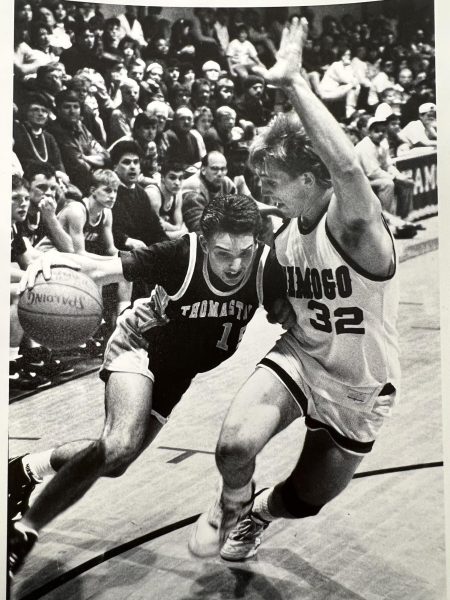
Even as a teenager, Brutting realized that moments like these meant he needed to lead by example.
“Some coaches would have grumbled about a bad attitude or not even followed up after the incident,” Brutting said. “He didn’t. He showed he cared about me and the team and made sure I knew that I appreciated that. It made me respect him and like him as a coach more than ever.”
Like Brutting, his players respect him, too, and understand the importance of leadership. He shows that he cares about his players much like his coaches cared for him.
“The way he puts himself out there, like just the positivity and the way he pushes us at practice is just so different from the super competitive environment that I’m used to,” said Rosie Makarewicz, a freshman soccer player who has only known Brutting for six months yet appreciates the positive environment created for his players. “It’s not that he’s not competitive, just the positive way he looks at everything is definitely different.”
Players and other coaches all claim he shows wants to be there which makes him different from others. Showing that the team means a lot to him even when his team’s experience setbacks, he still arrives to practice the next day with a smile.
“I started coaching because I hoped to create opportunities for players to have experiences like I did when I was a young player,” Brutting said. “There are plenty of challenges as a coach. Balancing, working hard, the attention to detail, getting the kids to really buy into doing things, but also enjoying themselves and having fun, because being a part of a team should be a good mixture of those things.”
Moments like these led Brutting to be an impactful coach and teacher, creating formative memories for his players much like his coaches did for him.
Coaching his own players? No problem. Taking on the responsibility of developing his fellow coaches? Brutting takes this on, too.
NHS boys soccer coach Toby Denman, who coached NHS girls basketball and won two league titles with Brutting, has been a firsthand witness to Brutting’s coaching skills.
“Sometimes in order to be successful in competitive situations, you have to prepare for them, and he’s a tactician,” says Denman. “Brutting plans and has strategies in place to try to give his team the best chance to win.”
Today, Brutting’s attention to the most minute details of running a classroom or coaching a team come back to his own childhood experiences as an athlete in Thomaston.
“My baseball coach was a stickler for detail,” Brutting remembers. “He always emphasized paying extremely close attention to all the little things from learning how to correctly bunt a baseball to running the bases to wearing the uniform correctly. We had to wear black baseball cleats and polish them with black shoe polish before every game. An outsider would probably wonder why he made us do that and think it was crazy, but he had a clear baseball reason. If a pitcher threw a low pitch or curveball down in the dirt toward your feet dust would fly and the umpire would usually just call it a ball. Our coach would yell, ‘Check the ball!’ to the umpire and if there was a black polish mark on the ball, it would be considered a hit by pitch and the batter would get to go to first base. He really made me realize how important it is to pay attention to the little details.”

No matter win or lose, the team loves to have him as their coach as his spark brightens the group. Regardless of score, Brutting can always be counted on to bring something immeasurable: energy.
“I think the biggest thing is when you watch, before games, at practice, on the bus, things like that, when you see them [players] interact, and you’re like, man, that crew really likes each other,” Brutting said of his own team’s culture. “To me, that’s a sign of being successful aside from, of course, the accolades of winning and things like that.”
From coaching to teaching it isn’t about the grades, the test scores, the wins, or the loses. For Brutting, it’s about the indelible experiences he creates for his players and students.
“He definitely spoke about how to be a better person,” former WMS student Krystal Lionhood said when remembering her experiences in his class. “He always shows his sweet side that he had that powerful kind of strict thing to him and then he also had that sweet side where he was able to portray both in a very powerful way.”
Students remember his class fondly, from his teaching approach to his sense of humor; when asked about him, everyone’s face lights up and smiles appear. The light that Brutting spreads is compared to none but is shared with all.
“I guess you could say to the kids who I had, if they look back on [class] in a fond way, because they appreciated the work or the activities we did or the challenges we did,” Brutting adds. “If they look at it in a way that was positive, then to me, that’s success.”



